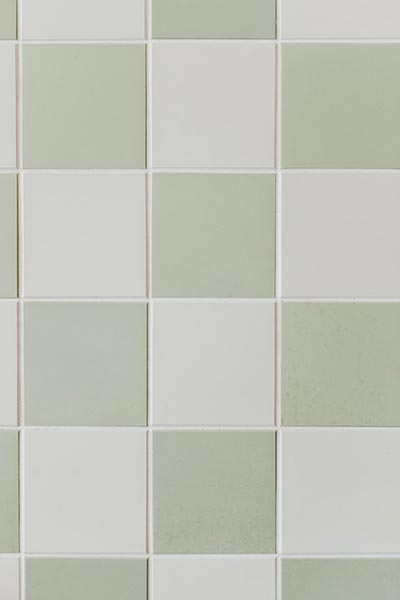Do Tile Floors Need to Be Sealed?
 Whether you’ve just installed new tiles in your home or have existing ones, sealing them is something many homeowners have a hard time deciding. First off, before you decide whether to seal your tiles, you must understand that two main components make up tiles. Those two components are the grout and tiles themselves; grout is what keeps your tiles in place. Grout is naturally porous, which means that it’s susceptible to accelerated staining.
Whether you’ve just installed new tiles in your home or have existing ones, sealing them is something many homeowners have a hard time deciding. First off, before you decide whether to seal your tiles, you must understand that two main components make up tiles. Those two components are the grout and tiles themselves; grout is what keeps your tiles in place. Grout is naturally porous, which means that it’s susceptible to accelerated staining.
Grout needs to be sealed to protect it from degradation, which can impact the look of your tiles. Tiles, on the other hand, do not outrightly have to be sealed; however, there are several benefits to doing so. Sealing helps strengthen your tiles while also protecting them from erosion, stains, dirt, and more.
If you’ve been struggling with the decision to seal your tiles, you’ve come to the right place. Below, we’re going to give you a detailed look at all of the benefits you’ll experience if you do decide to apply a sealant to your tiles.
Do tile floors need to be sealed every time?
Before sealing your tiles, you need to let the grout in between them cure. Once that’s done, you can proceed with the sealing process. Many sealants on the market provide specific benefits when applied to particular tile materials. As you may know, tiles come in various options, but the most common are porcelain tile and ceramic tile. It’s essential to identify the type of tiles you have because it will affect the sealer you use.
Regardless of what tiles you decide to but, they will either be porous or non-porous. You need to know this because certain sealants won’t work on non-porous tiles and vice versa. You can test if you have porous or non-porous tiles by merely placing a damp sponge on them. If you see a dark spot on the tiles after picking up the sponge, you have porous tiles.
The two sealers available are penetrating sealers and surface sealers. Penetrating sealers are used for porous tiles because it seeps into the tiny parts of your tiles to protect them from damage completely. Sealing your tiles is not required; however, it’s recommended because, without sealant, your tiles are more susceptible to damage and a decline in quality over time.
There are a few crucial steps to follow for optimal results when you decide to seal your tiles. Continue reading to find out more.
How to seal tile floors
Once you’ve found the right sealer to use on your tiles, it is time to apply it. To do this, you can use several different methods; however, the most common is by using a sponge. If you don’t have any prior experience sealing tiles, you should contact a professional who can assist you. For those that want to give it a try on their own, follow the instructions below.
How to seal your pavers using a sealant
- Get a fresh sponge that is free of any dirt or dust particles to avoid ruining the seal once finished.
- Find a small bucket you can use to coat your sponge with your chosen sealant.
- Put on gloves before starting the sealing process so that your hands don’t contact any toxic chemicals during the sealing process.
- Prepare your tiles for sealing by cleaning them with a gentle cleanser.
- Please wait until your tiles are completely dry after cleaning them before sealing them.
- Once completely dry, use the manufacturer directions that came with your selected tile sealant to begin preparing it for the application.
- Wipe the sealant onto your tiles using your clean sponge, making an even spread. Wait until the sealant is dry then wipe off the excess with a clean cloth.
- Repeat the above process about four times
- Let your sealant dry according to the manufacturer instructions
Once you’ve completed all of the above steps, you will have beautifully sealed tiles protected from damage, spills, and much more.
People Also Ask
Can you seal porous floor tiles?
Yes, porous floor tiles can be sealed; however, you need to use a penetrating sealer. Penetrating sealers are designed specifically for porous tiles as it seeps into the tiny cracks to provide total protection. It also prevents your tiles from absorbing any liquids that contact it after being sealed.
What happens if you don’t seal grout?
Without a sealant applied, your grout is susceptible to stain, bacteria, and water absorption. Sealing grout helps prolong the strength, look, and texture of your grout, which is why it’s recommended.
Does tile sealer go bad?
Yes, silicone-based tile sealers will eventually begin to degrade in quality over time. This decline can happen in one year or more, all depending on how much traffic frequents your tiles and other variables.
Conclusion
By using all of the tips and information we’ve given you in this write-up, you’ll be able to prolong the look, texture, and strength of your tiles for a long time. If you still have questions about tile sealing, contact a local service provider who can assist you.
Check out more of our blogs about our painting services
What is the best paint for outside walls
How much does commercial painting cost?
Best time to paint house exterior
How Often To Paint House Exterior?
What color house sells best?
Should entire house be painted same color?









